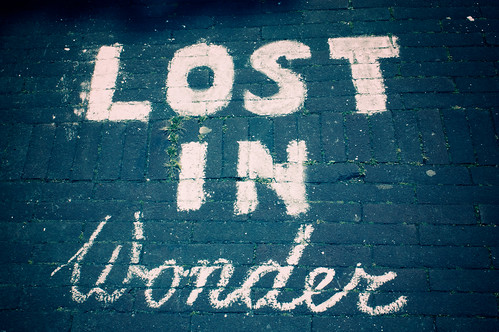
I was talking with a prof from a Synodical college about what can be done to increase the appeal and market our Concordia system better. He said that my suggestions would be dismissed as "elitist" by those in charge. I left that conversation with a mind full of things... One of them related his response to the way people see liturgical Lutherans. Often, they are portrayed as "elitist" -- bastions of an old, antiquated, high culture that is no longer accessible to most folk and no longer desirable to most folk. You know what? How we are portrayed is often how we act. We retreat into smoke filled rooms to sip our single malt scotch (or some sherry) while chamber music plays in the background and we lament what is gone as if we were those anecdotal minor titled Brits hiding behind aged oak doors lamenting the loss of the empire. So I exaggerate. We need to come out from our hiding places and confront the challenges before us. We need to do so in a winsome way -- not simply as naysayers against all things new but as those who have a hopeful voice to speak positively of the vibrant sacramental reality that calls us, gathers us, enlightens us, and sanctifies us as the people of God, His Church.
Thankfully, Hans Fiene has said it better than I and has given us a great manifesto for the battle scarred soldiers of the worship wars -- an alternative to simply recounting the battles of old as we nurse our wounds. Y
ou can read the whole thing here but I have copied pertinent parts of his post below. Either way, it is something to think about!
Here he is in his own words:
If we want to stop the false teachers in our midst from digging their fingers into the toilets of
Willow Creek and
passing off their findings as compatible with the Book of Concord, then
we must teach the people around us to recognize the lie of evangelical
form and Lutheran substance. And in order to teach them to recognize
that lie, then, when it comes to those who sell it, we must out-confess
them, out-proclaim them, out-evangelize them, out-outreach them. We
must simply out-work them, both inside and outside of our congregations.
So when they sing vague, meaningless, mantra-driven,spiritualistic
blech, we sing the best of our hymns and we sing them right in the face
of the word. We pour those hymns out in concert halls, in youtube
videos, at our dinner tables and anywhere else we can fit them until the
world knows what Lutheran music sounds like and knows that Lutheran
music doesn’t sound like a
horrible, husky voiced U2 sound alike.
When they teach purpose-driven poppycock, we teach Law and Gospel and
we teach this to any set of ears we can find in this world. We teach
it, with the aid of the internet, to people starving for the Gospel
halfway across the country and on the other side of the world. We teach
it in conversations with our friends. We teach it to our neighbors
when a couple of Mormons come knocking on their door and we insert
ourselves into the discussion in order to show them that our Gospel is
so awesome it just swallowed Joseph Smith’s gospel in one bite and
crapped it out the other end.
When they teach their youth to talk like hipster-evangelicals, we
teach our youth to talk like Lutherans. We brand the Catechism into
their memories. We give them the vocabulary of the Scriptures. And we
train them to know their theology so well that the pastors of the other
churches in town secretly hope their youth group members don’t bring any
of their Lutheran friends to the next Bible study, lest another 14 year
old respond to their denial of baptismal regeneration by tearing them
apart in a fury of theological evisceration so bloody it would make
Quentin Tarantino nauseous.
And
when they embark on gimmicky outreach programs riddled with a theology
of glory and a denial of original sin, we respond by reaching out
further with our hands filled with big, fat chunks of Lutheran bread.
So when they build sleek websites that boast of their faithfulness to
God, we build equally sleek websites that make it very clear to people
in half a second that Lutherans aren’t interested in marketing
themselves but in confessing Christ and His forgiveness. When they
build coffee shops for seekers where one can learn how to have a
proactive faith walk, we build shelters for the needy where sinners can
say to themselves,
man, when those Lutherans feed me and clothe me
and care for me and pray with me and talk with me, they don’t tell me
about how my suffering will be gone if I just believe more or trust more
or obey more. Instead, they tell me about Jesus and His love for me in
the midst of my suffering, even as they’re trying to take my suffering
away.
So this is what we do. When the Pseudo-Lutherans speak, we speak
louder to our friends and neighbors. When they yell, we shout to the
public. When they shout, we scream to the world. And we don’t stop
screaming until God gives us what we need-a culture of Lutheranism, a
world where people who have never even set foot in one of our churches
know what a Lutheran looks like and sounds like, and a world where
people understand that the only reason a Lutheran doesn’t preach or
teach or worship or act like a Lutheran is because he’s not a Lutheran.





